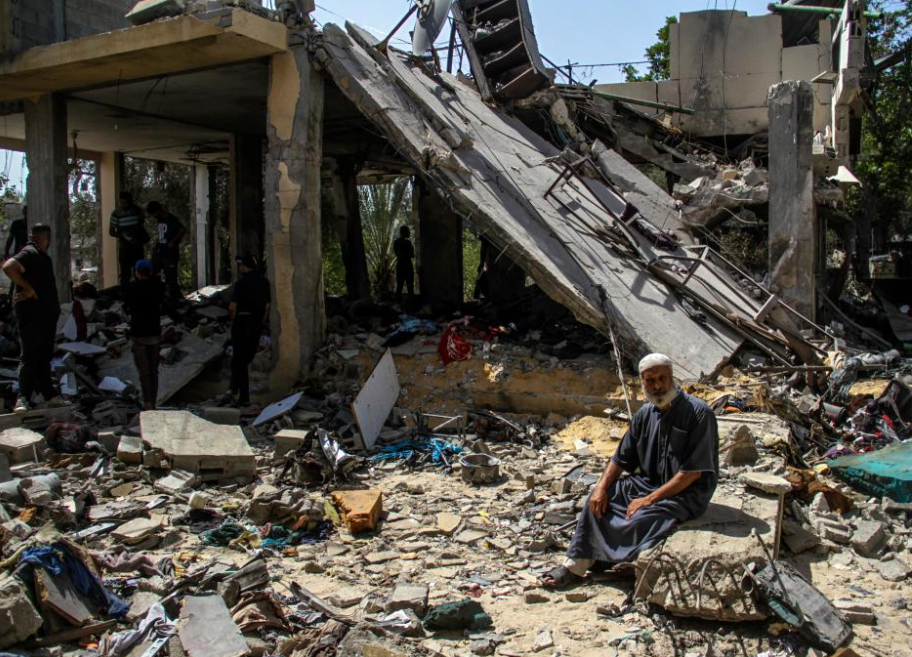
The United States is seen as seemingly trying to downplay the immediate threat of a broader conflict in the Middle East even after two of its air carriers are now ready for attacks in the region while Israeli strikes continue in both Gaza Strip of Palestine and Lebanon.
Israeli attacks on Gaza — mainly in Deir el-Balah and Khan Younis in the south — have killed at least 20 people, Al Jazeera reported on Aug 27.
The attacks came just days after Israel and Hezbollah exchanged strikes along the Israel-Lebanon border on Aug 25.
Hezbollah unleashed hundreds of missiles against Israel in retaliation for the killing of its top military commander, Fouad Shokor, in Beirut in late July.
Tel Aviv reported it had conducted a series of “preemptive airstrikes” targeting Hezbollah’s rocket launchers in southern Lebanon.
Despite this, United States Air Force General Charles Q. Brown, Jr, chairman of the Joint Chiefs of Staff, told Reuters that the near-term risk of a broader conflict in the Middle East had eased “somewhat”.
However, he urged caution over a possible response from Iran, adding that Teheran’s regional allies also posed a risk.
Yet recently the US has deployed its warships to the Middle East amid concerns of a regional escalation after the assassination of Hamas leader Ismail Haniyeh in Teheran on July 31.
The Pentagon has extended the deployment of the aircraft carrier
Theodore Roosevelt
and its strike group after a largely failed attack by the Iran-backed Lebanese Hezbollah on Israel over the weekend, according to a report by Defense News website.
The
Theodore Roosevelt
arrived in the Middle East in early July, replacing the carrier
Dwight D. Eisenhower
, whose deployment to the region had itself been extended multiple times, earlier this summer. Just last week fellow carrier
Abraham Lincoln
steamed into the region. Now two carriers and their warships are “available for US Central Command amid the threat of a full regional war erupting”, said the report.
While many have viewed the exchange of fire at Lebanon border as a significant escalation in the longstanding Israel-Hezbollah conflict, Ayman Yousef, an international relations professor at the Arab American University in Jenin in the West Bank, told China Daily Hezbollah’s response was “nothing extraordinary”.
He said that he thinks Washington “is watching the behavior of Hezbollah”, which so far has proved to be “very much within the rules of confrontation”.
“Hezbollah did not hit any civilian targets. It did not hit any Israeli city or civilian settlements but instead the focus was on some military posts, establishments, and installments,” said Yousef, adding that Washington was not ready for any kind of regional confrontation where Israel and Iran would face off.
On the ground, Yousef said he believes Israeli Prime Minister Benjamin Netanyahu will “keep on moving militarily in Gaza”, taking advantage of weak opposition at home.
“The opposition forces in Israel are not united. They failed to neutralize this government led by Netanyahu,” said Yousef, adding that this scenario may continue until the US presidential elections in November.
According to Yousef, Netanyahu will be watching the outcome of those elections to see who wins between former US president Donald Trump and current US Vice-President Kamala Harris.
“I think Netanyahu’s going to continue bargaining with the US, as he’s bargaining with Hamas, as [he is] with the mediators including the Egyptians and Qataris,” he said.
“So this is part of his strategy and vision to carry on with this war. I think the war is serving him at the political level and personal level. At all levels,” said Yousef.
On Aug 26, Qatari Prime Minister and Foreign Minister Sheikh Mohammed bin Abdulrahman Al Thani met Iranian Foreign Minsiter Abbas Araghchi in Tehran on Monday, a day after the latest round of Gaza ceasefire negotiations ended without an agreement, Iran International reported.
Further, the report said Iran would support any cease-fire deal agreed by Hamas, Araghchi told his Qatari counterpart.